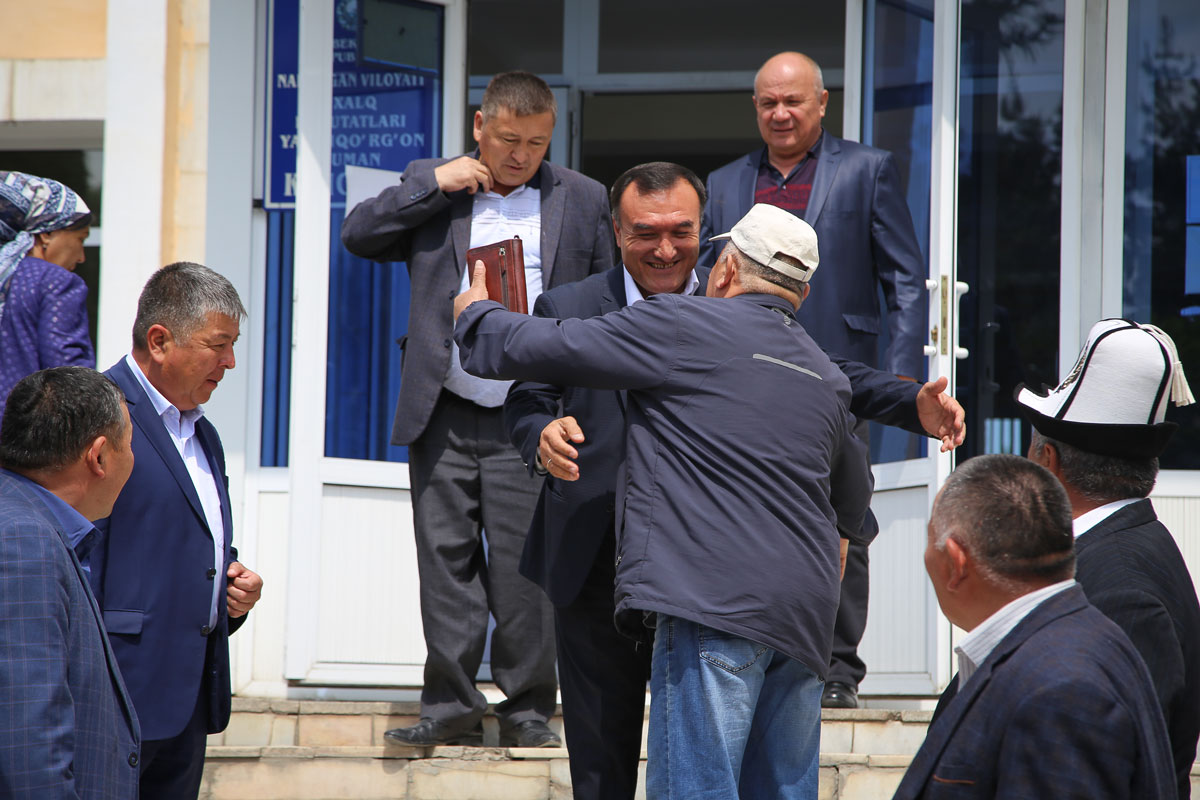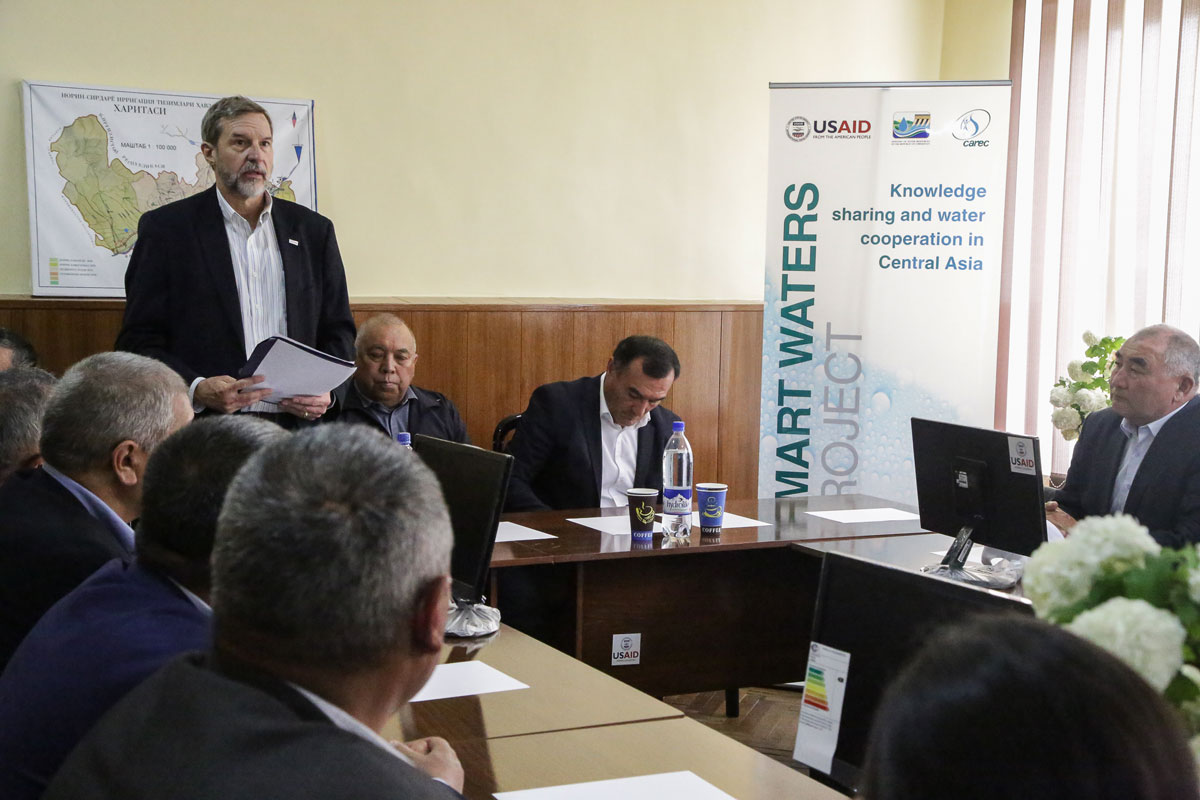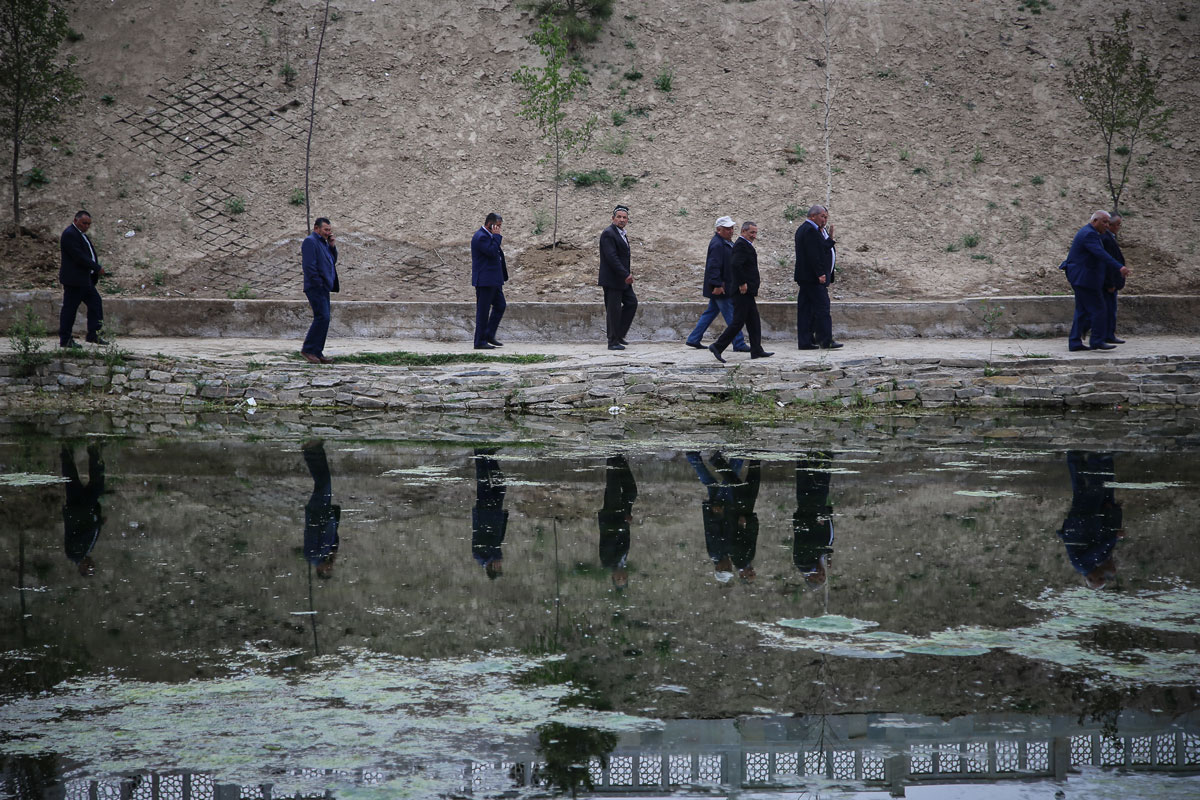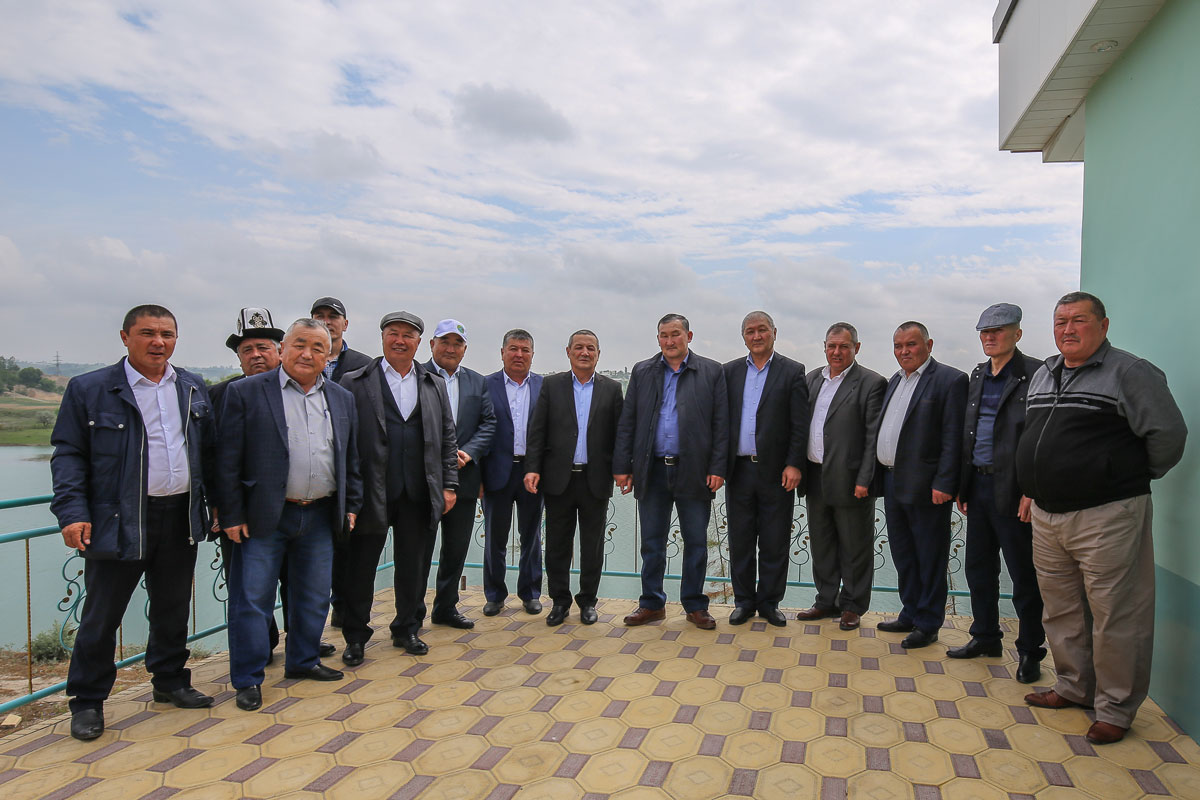
On April 22-23 the second joint meeting of the Small Basin Councils of the Uzbek and Kyrgyz parts of the Padshaata River took place in the Namangan region of Uzbekistan. The event was held within CAREC-USAID project Smart Waters, which is implemented in Central Asian countries and Afghanistan.
A year ago, the first Small Basin Councils at Padshaata river were established within the Smart Waters project. The first joint meeting of SBCs was held in September 2018 on the territory of the Kyrgyz Republic.

“The increasing demand for and declining supply of shared water resources requires close regional and interstate cooperation to ensure better management and effective utilization. It is especially important for countries to have access to accurate and commonly accepted water resource data to effectively manage resources”, said Mr Gary Robbins, USAID Central Asia office Director in Uzbekistan.
During this meeting, the basin councils agreed to meet on a regular basis to discuss and resolve joint issues regarding the operation and maintenance of the irrigation infrastructure of the basin, water accounting and data exchange, and other aspects of cooperation.
“Due to the Smart Waters project, our two SBCs were established. We cooperate actively for two years with colleagues from Uzbekistan. Our main task now is to improve and strengthen this cooperation, to discuss the issues of water resources management, to find beneficial solutions. I would also like to thank the khokim (administration) of Yangikurgan district for this opportunity to hold the second SBCs meeting here, on Uzbek side of Padshaata River, as well as for the demonstration of water objects and farms,” mentioned Mr. Masalbek Myrzamamytov, the chairman of SBC on Kyrgyz side of Padshaata River.
On the first day of the second joint meeting, an opening ceremony of the SBC meeting hall of the Uzbek part of Padshaata River was held. Then, during the demo-tour, organized with the support of khokimiyat (local administration) of Yangikurgan district, the participants learned about water management experience in Uzbekistan and support given by the government to the farmers who apply water-saving technologies. SBC members visited such objects as Eski yer water reservoir, Galaba-1 pump station, greenhouse with the implementation of Korean and Israeli technologies, big orchard with drip irrigation system.

“I would like to thank USAID and CAREC for the support to our SBCs and the opportunity to discuss important issues with colleagues. Water in the Padshaata River, which is used on the territory of Yangikurgan and partly Chartak districts of Namangan region, comes from Kyrgyzstan. With the help of the project, our specialists can discuss and develop the solutions for the issues of management of joint water resources. And that will lead to the strengthening of our partnership and increasing its efficiency. Such meetings and trainings provide us with new knowledge and skills, allow sharing useful information. We hope that this meeting will be useful for both sides,” noted Mr Saydilla Mekhmonov, the chairman of SBC on the Uzbek side of Padshaata River.
During the second day, on April 23, the participants discussed concrete issues on water resources management of Padshaata river. In particular, the joint repair of bearing post on the Kyrgyz side of the river, as well as installation of water measurement devices for effective and accurate data. Then the participants discussed the opportunity to provide for a short term special equipment by Uzbek side to colleagues in Kyrgyzstan for water management activities. One more issue that was discussed is the support in the dissemination of information throughout the Namangan region about eco-tourism on the Kyrgyz side of the river for its further development.
It is worth to note separately that SBC members agreed to hold the first Padshaata River Day. The event is scheduled on June 12-14 of this year and will be held on the territory of Kyrgyzstan. CAREC specialists underlined that this working meeting of two Small Basin Councils shows positive changes in both countries thanks to bilateral cooperation.

The objective of the Smart Waters project is to improve the training system of the personnel, to establish working relationships between the water users, as well as to demonstrate the potential of the basin approach in water management and strengthen regional academic cooperation. The Smart Waters project is being implemented in Uzbekistan based on the approval of the Cabinet of Ministers of the Republic of Uzbekistan dated January 16, 2017, and the Agreement signed between CAREC and the Ministry of Water Resources of the Republic of Uzbekistan on February 1, 2017.

